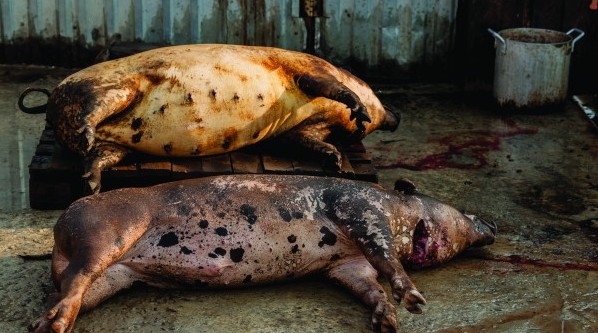The Government has raised the risk level of African swine fever (ASF) entering the country from ‘low’ to ‘medium’ meaning an incursion is likely.
With a huge number of variables affecting the likelihood of a damaging incursion, it is urging businesses to take actions to reduce the risk.
In its latest assessment on the risk of the virus coming into the UK from Europe, Defra says the situation in the EU has deteriorated since June 2017 with several new areas in Poland, Romania, Hungary, Czech Republic and Belgium reporting disease.
These ‘jumps’ (defined loosely as a new focus of infection at least 100km from the nearest wild boar case) are most likely to have been caused by humans. This includes the movement of infected or contaminated meat products, which are then left in areas where wild boar can access them and the introduction of the virus into domestic pig farms with low biosecurity.
Compounding the uncertainty is the fact that the origin of these products is often unknown and therefore the source of infection is often only a suspicion. The ASF virus circulating in the EU and East Europe is still represented by genotype II, with little strain variation.
It is a highly pathogenic virus in domestic pigs and the Eurasian wild boar, but the rate of spread within herds appears to be relatively slow (days to weeks) via direct contact with infected animals, their secretions or ingestion of contaminated feed, products or contact with contaminated surfaces. As a result, suspect cases may not be reported in a timely manner, the document noted.
The virus persists for long time periods in the environment and in fresh, frozen or preserved meats.
The European Commission has set up a framework of regional controls. It establishes animal controls on the movement and trade of pigs and certain pig products from the areas at risk of infection to limit the spread of ASF to other areas of the EU. Regions of affected Member States are listed, based on their epidemiological situation and level of risk.
The Decision is aimed at avoiding unnecessary disturbance to trade within the EU and avoiding unjustified barriers to trade by third countries.
However, the Defra briefing stresses that tracing meat products that are not commercially produced, such as homemade sausages and hams. is difficult in the EU, where free movement of people and free circulation of products are binding principles.
“This means unless stricter controls are placed on the production of products, it will not be possible to prevent further incursions into unaffected areas,” Defra says.
“The risk lies with the lack of certainty regards the size of the restriction zones and the effectiveness of the measures taken within. The constant changes in the status of different zones is evidenced by this and therefore meat products from these regions must be regarded with this in mind.
“The risk is therefore dependent on robustness of official controls. Therefore, the risk level for the entry of ASF into the UK has been increased to MEDIUM (ie occurs regularly or LIKELY) with a medium level of uncertainty, which implies risk managers will need to consider more options for risk reduction.”




